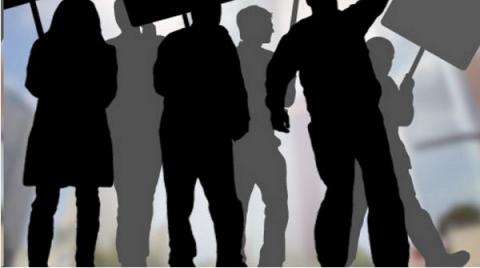Do Demonstrations and Marches Help or Hurt Their Cause?

Do Demonstrations and Marches Help or Hurt Their Cause?
From New America Media and La Opinion:
As Congress begins to discuss immigration reform, immigrant rights groups, DREAMers and their supporters marched in many U.S. cities, begging the question: Do these marches help achieve the goal of legislation beneficial to immigrants or are they counterproductive?
It all depends on whom you ask and how you interpret history. For Professor Gonzalo Santos, a sociologist at California State Bakersfield, you just have to look at the repercussions of the May 1, 1886 workers’ strike in Chicago.
"It is ironic that we are asking this question today, May 1, which commemorates an 1886 march of the emerging labor movement in Chicago demanding an eight-hour work day. That march was attacked by police, its leaders were eventually executed, and it was quashed immediately. But even so, it was the basis for the worldwide workers’ movement for decades to come," said Santos.
The same could be said, according to Santos, of the 1994 marches against California’s Proposition 187, the national mass mobilizations of 2006, and other marches in recent years. But, he admits, these demonstrations "combined with other actions to attain eventual social change."
Randy Jurado Ertll, director of Pasadena’s Center of Social Action, said marches can help, but it depends on how they are carried out.
"The community has to mobilize and advocate, but not only on the issue of immigration. It should have the same commitment to other social issues," said Jurado Ertll. "The downside could be if there are multiple competing marches, as has happened in the past, and the Latino leadership is divided. The reality is we have to keep pushing key congressmen and senators to vote for reform that benefits everyone, not just Latinos. "
Pro-immigrant marches have been a significant movement of the last 19 years, but they have not always been seen as positive, at least not immediately. A large Los Angeles march in 1994 against Proposition 187 -- the controversial ballot measure that sought to limit services to undocumented immigrants in California -- was criticized for the number of Mexican flags waved by protesters. Meanwhile the massive mobilizations in various cities in 2006 were considered an important moment in the visibility of immigrants and undocumented workers in this country.
In 1994, the march against Prop 187 did not prevent the measure, which was approved by 59 percent of California voters, but the proposition was later blocked in court. However, the results of the 2006 immigration can be considered mixed, at least at first glance.

"We must remember that these marches were to protest an extremely harmful law, the Sensenbrenner Bill, but did nothing positive to achieve immigration reform," said Kevin Johnson, dean of the UC Davis School of Law and blogger for Immigration Prof Blog.
Gustavo Bujanda, a Republican activist and critic of the anti-immigrant stance of many in his party, said that in his hometown of Dallas, the 2006 marches were an important wake-up call. "There had never been marches like that here; they were the first in history," said Bujanda. "The marches were positive because they showed the magnitude of the problem, but that does not mean they actually did something to pass immigration reform."
Bujanda said that "in Dallas, it is always the same people calling for marches, increasingly fewer people go, and what I see are people who want to take credit and say they are indispensable," he said. "For me those who really help the community are the attorneys handling cases like the one against Farmers Branch and those behind the bill, not the activists who organize the marches -- many of them just want to take credit."
Aly Wayne, an undocumented immigrant and peace activist in New York, said yesterday that as he marched, he had no idea the effect the demonstration would have in Congress.
"What I can tell you is that as an undocumented immigrant this is not just a calculation of [the political repercussions in] Washington. A couple of years ago we lost hope that politicians would change their minds and if we come out of the closet as undocumented immigrants, it’s a result of impatience with the system and a shift in consciousness: We refuse to have them continue to see us as 'criminals'," said Wayne.
"The marches are a right, and I wish we had them about more things," said Melissa Salas Blair, another Republican critical of her party's anti-immigrant stance of recent years. "But I think that those who support the marches are generally Democrats, they’re not the ones that we need to mobilize and persuade. What is missing are Republican representatives in districts where they are afraid that if they support reform, they’ll be voted out. They aren’t convinced by marches."
Christian Ramirez, an activist with the San Diego Immigrant Rights Consortium, said, "We can debate tactics like which flag we should carry, whether we should march with a white or red shirt, but really no one can question whether the people’s right to assemble peacefully is an appropriate tactic. It is a fundamental right in our society and for the health of democracy."
Translated by Jonah Harris.
Photos: New America Media; BJ Hokanson (Flickr, Creative Commons).






























































































































































































































































































































